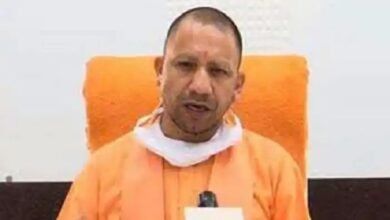[ad_1]
In upholding the abrogation of Article 370 of the Constitution on Monday (December 11), the Supreme Court ruled that Jammu and Kashmir did not retain an element of sovereignty or internal sovereignty after it joined the Union of India.
In his judgment (written for himself and Justices B R Gavai and Surya Kant), Chief Justice of India D Y Chandrachud recalled that in November 1949, Yuvraj Karan Singh, heir to the throne of Jammu and Kashmir, had issued a proclamation that reflected the “full and final surrender of [J&K’s] sovereignty… to India.”
What did the Supreme Court say?
On the question of “Whether Jammu and Kashmir retained an element of sovereignty or internal sovereignty when it joined the Union of India”, the ‘Essence of the Judgment’ read out by the CJI in court said J&K “did not retain an element of sovereignty when it joined the Union of India”. One of the reasons the court gave was as follows:
“On 25 November 1949, a Proclamation was issued for the State of Jammu and Kashmir by Yuvraj Karan Singh. The declaration in this Proclamation that the Constitution of India would not only supersede all other constitutional provisions in the State which were inconsistent with it but also abrogate them achieves what would have been attained by an agreement of merger. With the issuance of the Proclamation, paragraph 8 of the Instrument of Accession ceased to be of legal consequence. The 9 Proclamation reflects the full and final surrender of sovereignty by Jammu and Kashmir, through its sovereign ruler, to India — to her people who are sovereign.”
What was the proclamation by Karan Singh?
Karan Singh’s proclamation stated that the Government of India Act, 1935, which until then governed the constitutional relationship between J&K and the dominion of India, will stand repealed.
“That the Constitution of India shortly to be adopted by the Constituent Assembly of India shall in so far as it is applicable to the State of Jammu and Kashmir, govern the constitutional relationship between this State and the contemplated Union of India and shall be enforced in this State by me, my heirs and successors in accordance with the tenor of its provisions,” the proclamation said.
Also, “the provisions of the said Constitution shall, as from the date of its commencement, supersede and abrogate all other constitutional provisions inconsistent therewith which are at present in force in this State.”
Why did Karan Singh make the proclamation?
Speaking to The Indian Express soon after the judgment, Karan Singh, now 92, said: “It was something which was required, I think, at that time for the country and the state and therefore in order to get rid of any ambiguity I issued that proclamation.”
The ambiguity was over whether J&K became an integral part of India after Karan Singh’s father, Hari Singh, signed the Instrument of Accession (IoA) — the legal document that finalised J&K’s accession to India.
“My father signed the same instrument that all the other rulers signed… It did not then get integrated…in the sense that Sardar Patel integrated the others…so it always retained a measure of autonomy. Whether you can call that sovereignty or not, I don’t know…that is a technical matter,” Karan Singh added.
The Supreme Court’s ruling is in line with what the Centre had argued during the hearing. The Union government had said the 1949 proclamation accepted the supremacy of the Indian Constitution and surrendered sovereignty to it, where the sovereign was ‘We the people of India’.
[ad_2]





